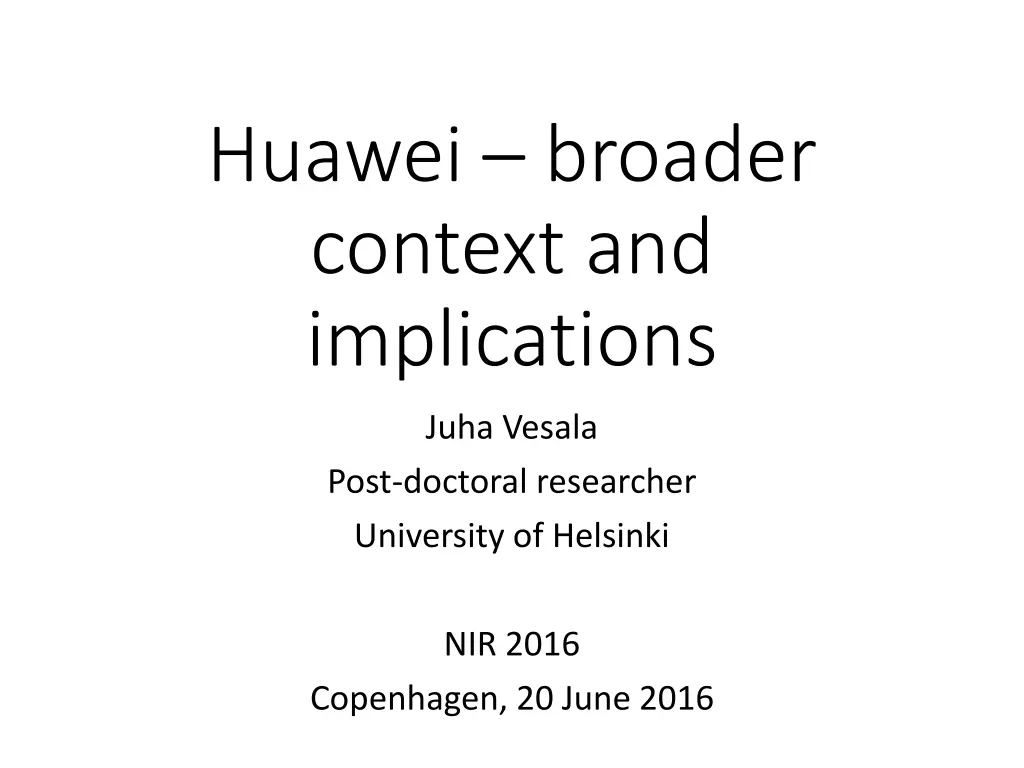
Implications of Huawei's Approach in Standard-Setting Context
Explore the implications of Huawei's exceptional circumstances paradigm in the standard-setting context, focusing on FRAND licensing commitments and the potential for abusive behavior. The discussion extends beyond SEP holders to consider broader scenarios where IPR holders give licensing commitments, emphasizing the importance of legitimate expectations and avoiding abuse in IP litigation.
Download Presentation

Please find below an Image/Link to download the presentation.
The content on the website is provided AS IS for your information and personal use only. It may not be sold, licensed, or shared on other websites without obtaining consent from the author. If you encounter any issues during the download, it is possible that the publisher has removed the file from their server.
You are allowed to download the files provided on this website for personal or commercial use, subject to the condition that they are used lawfully. All files are the property of their respective owners.
The content on the website is provided AS IS for your information and personal use only. It may not be sold, licensed, or shared on other websites without obtaining consent from the author.
E N D
Presentation Transcript
Huawei broader context and implications Juha Vesala Post-doctoral researcher University of Helsinki NIR 2016 Copenhagen, 20 June 2016
Approach and logic of Huawei Exercise / exceptional circumstances paradigm continued: standard-setting context represents exceptional circumstances distinct from previous ones identified by CJEU Indispensability of SEPs for product market competition FRAND licensing commitments given in exchange of SEP status and creating legitimate expectations In this context, seeking injunctive relief can be abusive to the extent FRAND license refused due to concerns about product market becoming reserved to SEP holder Effective legal remedies cannot be denied, but SEP holder's FRAND commitment justifies the imposition of preconditions for non-abusive enforcement
Applicability to SEPs in other situations CJEU's reasoning addresses exclusion from product market by SEP holder that is active on it does not explicitly cover injunctions in other settings (e.g. NPEs and situations where foreclosure concerns are not major) However, the generally formulated steps imposed on SEP holders would seem to address these situations quite broadly Assessment of other abuses (e.g. excessive royalties) could also be influenced by the framework established for negotiations
Implications beyond SEPs? The logic of abusiveness (indispensability and legitimate expectations) is not unique to SEPs Comparable circumstances could be found when IPR holders give licensing commitments in other situations where IPR is indispensable for operating on a product market and the commitment contributes to the technology gaining that position Open source licensing Unilateral de facto standards Comparable abuse could also be alleged when IPR holder seeks injunctive relief in a way that justifies limitation on effective remedies SEPs that were not properly disclosed (no licensing commitment) Attempts to exploit IP litigation system (e.g. costs of redesign and litigation)



